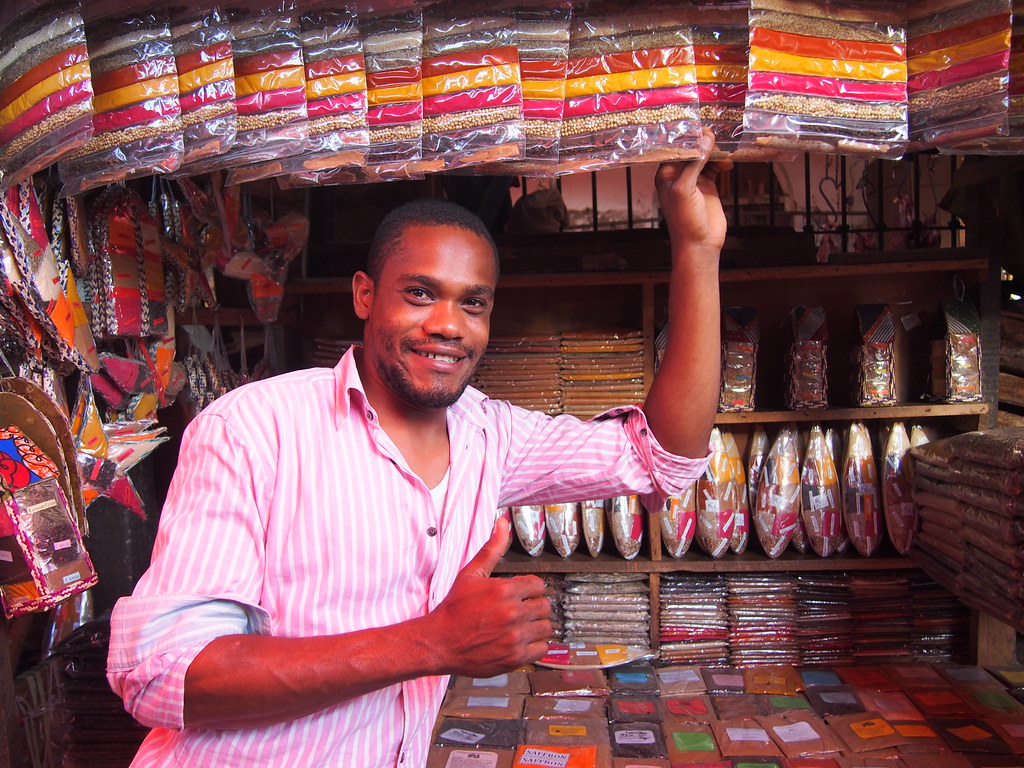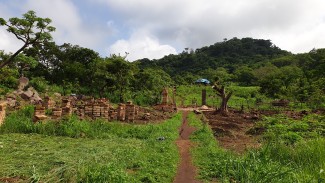A new study for Tanzania — the Diagnostic Trade Integration Study (DTIS) update — highlights opportunities for developing and improving trade opportunities for Tanzanian businesses and investors.
Currently, some Tanzanian businesses and investors are struggling to trade due to a costly and restrictive regulatory environment.
“Take the dairy industry, where earlier reviews conducted in 2014 found the existence of 42 inspections, permits and licenses administered by 15 different institutions that are still in place today,” says Bede Lyimo, the lead national consultant of the DTIS update study.
“A small-scale dairy plant can’t comply with these regulations and the costs involved. In fact, we found that 27 of these licenses are not even necessary.”
“The private sector has been pushing a reform agenda for some time now: investors are losing motivation, small banks facing financial distress, and businesses are closing down… we see this study as an opportunity to move the debate into action,” he says.
Diagnostic Trade Integration Studies (DTIS) are intended to uncover barriers to trade and help countries prioritize where investments on trade should be directed.
“Unlike other analyses, these studies are highly consultative and are driven by consensus,” says Maryla Maliszewska, a senior economist with the World Bank and team leader of the study.
The government, private sector and donors decided together on the study priorities and reviewed policy recommendations formulated by a team of local experts and international consultants. The process was also transparent to the public, with draft chapters published on the Ministry of Industry, Trade and Investment’s website and open for comment. This approach ensures that the policy recommendations are feasible and actionable, Maliszewska says.
"The private sector has been pushing a reform agenda for some time now: investors are losing motivation, small banks facing financial distress, and businesses are closing down… we see this study as an opportunity to move the debate into action."
Bede Lyimo, lead national consultant of the DTIS update study
“Often reports are written from the perspective of an ‘ideal world’. But many recommendations will not be implemented because they are not realistic or a priority for the government,” she says.
“The policy action matrix that is produced as the primary output of the DTIS is debated and discussed by all the actors who will play a role in implementing it, giving them ownership to then actually implement it.”
Tanzania conducted its first Diagnostic Trade Integration Study in 2005, which resulted in a comprehensive set of policy recommendations related to supply side constraints such as high transport costs, unnecessary taxes, reforming crop boards and strengthening training amongst others.
According to Maliszewska, implementation challenges between the first DTIS and the update included limited prioritization, the long gestation period between report validation and the adoption of a strategy, and program for its implementation. Only 20 out of 124 actions have been implemented to-date, which is is the rationale for focusing on a much smaller field in the update.
The update, published this year, intended to take stock of the progress in implementing these recommendations as well as analyze three key sectors for inclusive growth: agriculture, tourism and extractive industries.
“Not only are these three sectors important by themselves it is the focus on the linkages between them and their trade dimensions that make this analysis unique,” says Simon Hess from the Enhanced Integrated Framework (EIF) which supported the World Bank to conduct the study.
INFOGRAPHIC: TANZANIA'S DTIS EXPLAINED
AGRICULTURE, TOURISM, EXTRACTION
The new DTIS study found that 70% of Tanzanian households depend on agriculture for their livelihoods. However multiple and overlapping requirements and closed markets for key crops are hampering many producers and traders.
Tourism is Tanzania’s biggest export earner: it contributes nearly 12% of GDP. However, a lack of qualified professionals and multiple permit requirements makes doing business more difficult, the study found.
In terms of extractive industries, the study showed that minerals make up nearly a quarter of exports, but they only account for 4% of GDP. Strategies for increased beneficiation would transform this proportion.
There is a lot of enthusiasm vested in the three sectors, inherent opportunities and their potential, says Lyimo, but the government can seize the opportunity by addressing constraints in the regulatory regime.
This was also the first DTIS that covered gender issues.
“This is a key factor considering that three quarters of all small scale cross-border traders in Tanzania are women,” Hess says.
The study found that 27% of workers in artisanal mining are women. Female traders are also more harassed at border inspections than male traders.
The study recommends creating gender desks at all trade related government ministries, consulting with women’s association and collecting data on women’s participation in different sectors.
The study found that 27% of workers in artisanal mining are women. Female traders are also more harassed at border inspections than male traders.
The DTIS also included a distinct section on the unique situation of Zanzibar, an historically important trading hub.
“Zanzibar was not covered in the 2005 DTIS,” Maliszewska says. “They have their own policies and regulations, which creates friction in trade, while the presence of two revenue authorities for the mainland and the island (TRA and ZRB) is challenging for medium- and small-scale enterprises,” she says.
RESTRICTIVE REGULATIONS
The strongest emerging theme of the study was the restrictive regulatory environment. Maliszewska explains that this is a consequence of beliefs about risk.
“There is an entrenched belief that markets need to be regulated very carefully to be safe. This has led to lots of unnecessarily restrictive regulations,” she says.
“For example, all imports are tested for radioactive materials. In 15 years, no radioactive material has been found, so an evidence based approach suggests that random inspections informed by risk-analysis would be more cost effective and efficient.”
The government of Tanzania also applies export bans in cases of food shortages, but it is often unclear if and when such bans will be put in place, making it hard for traders and producers to plan.
The government of Tanzania also applies export bans in cases of food shortages, but it is often unclear if and when such bans will be put in place, making it hard for traders and producers to plan. There are numerous studies showing that export bans fail to increase food security and always result in much lower prices for farmers Small investors with bank loans face extreme difficulties in repaying loans when export bans are put in place.
“There are better ways of assuring food safety and guarding against food shortages such as allowing for free international and domestic trade. increasing the capacity of the Strategic Grain Reserve system or improving monitoring of national food supply to head off potential shortages. Even if the policy of banning exports is maintained, it should be be transparent and well-advertised,” Maliszewska says.
“There is an entrenched belief that markets need to be regulated very carefully to be safe. This has led to lots of unnecessarily restrictive regulations.”
Maryla Maliszewska, senior economist with the World Bank and team leader of the study
Moreover, the costly permits that traders are required to obtain to export goods are a barrier for smaller operations who often need to travel to the capital city to submit an application.
The study recommends developing an online trade portal to help traders better access and submit paperwork.
“This would be a single place where the trade requirements are listed and are easily obtainable,” Maliszewska says. “The trade portal would be a go to place for information on trade requirements including SPS requirements, free TBS standards if mandatory, online application forms for all trade permits, and mandatory public notice of all trade restrictions or trade bans.”
Streamlining regulations would be a next step. But to do that, Lyimo says, further evidence of the extent of the problem is needed.
“The hidden problem is that we have hundreds of institutions raising revenue and if we have evidence to show who are those and how much they are raising compared to GDP then the figure would be so dramatic that something would need to be done,” he said.
Reforming the business environment is a priority of the government, says Augustino Likwelile, from Tanzania’s Ministry of Industry, Trade and Investment.
“We look forward to working with each line ministry to implement these recommendations,” he says.
The DTIS update comes at the same time as the government’s overarching initiative — the Blueprint of Business Environment in Tanzania — which is expected to be adopted by government in January 2018.
View Tanzania images from the EIF here.
Header image of a Timorese woman with coffee beans - ©UN Photo/Martine Perret via Flickr Creative Commons Attribution-NonCommercial-NoDerivs 2.0 Generic (CC BY-NC-ND 2.0)
If you would like to reuse any material published here, please let us know by sending an email to EIF Communications: eifcommunications@wto.org.



